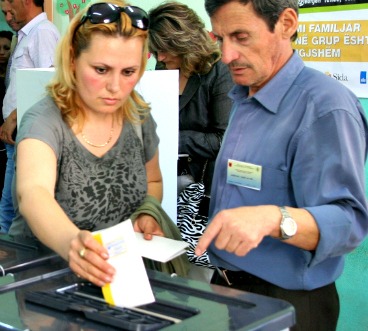Mr. Speaker, I am introducing today the Belarus Democracy Act of 2002, which is intended to help promote democratic development, human rights and the rule of law in the Republic of Belarus, as well as encourage the consolidation and strengthening of Belarus’ sovereignty and independence. When measured against other European countries, the state of human rights in Belarus is abysmal – it has the worst record of any European state.
Through an illegitimate 1996 referendum, Alexander Lukashenka usurped power, while suppressing the duly-elected legislature and the judiciary. His regime has blatantly and repeatedly violated basic freedoms of speech, expression, assembly, association and religion. The fledgling democratic opposition, non-governmental organizations and independent media have all faced harassment. There are credible allegations of Lukashenka regime involvement in the disappearances – in 1999 and 2000 – of opposition members and a journalist. There is growing evidence that Belarus is a leading supplier of lethal military equipment to rogue states. A draft bill is making its way in the Belarusian legislature that would restrict non-traditional religious groups. Several days ago, on June 24, two leading journalists were sentenced to two and 2 ½ years, respectively, of “restricted freedom” for allegedly slandering the Belarusian President.
Despite efforts by Members of Congress, the Helsinki Commission which I co-chair, the State Department, various American NGOs, the Organization for Security and Cooperation in Europe (OSCE) and other European organizations, the regime of Alexander Lukashenka continues its hold onto power with impunity and to the detriment of the Belarusian people.
One of the primary purposes of this bill is to demonstrate U.S. support for those struggling to promote democracy and respect for human rights in Belarus despite the formidable pressures they face from the anti-democratic regime. The bill authorizes increases in assistance for democracy-building activities such as support for non-governmental organizations, independent media – including radio and television broadcasting to Belarus, and international exchanges. The bill also encourages free and fair parliamentary elections, conducted in a manner consistent with international standards – in sharp contrast to recent parliamentary and presidential elections in Belarus which most assuredly did not meet democratic standards. As a result of these elections, Belarus has the distinction of lacking legitimate presidential and parliamentary leadership, which contributes to that country’s self-imposed isolation.
In addition, this bill would impose sanctions against the Lukashenka regime, and deny high-ranking officials of the regime entry into the United States. Strategic exports to the Belarusian Government would be prohibited, as well as U.S. Government financing, except for humanitarian goods and agricultural or medical products. The U.S. Executive Directors of the international financial institutions would be encouraged to vote against financial assistance to the Government of Belarus except for loans and assistance that serve humanitarian needs.
The bill would require reports from the President concerning the sale or delivery of weapons or weapons-related technologies from Belarus to rogue states.
Mr. Speaker, finally, it is my hope that this bill will help put an end to the pattern of clear, gross and uncorrected violations of OSCE commitments by the Lukashenka regime and will serve as a catalyst to facilitate Belarus’ integration into democratic Europe in which democratic principles and human rights are respected and the rule of law prevails.










